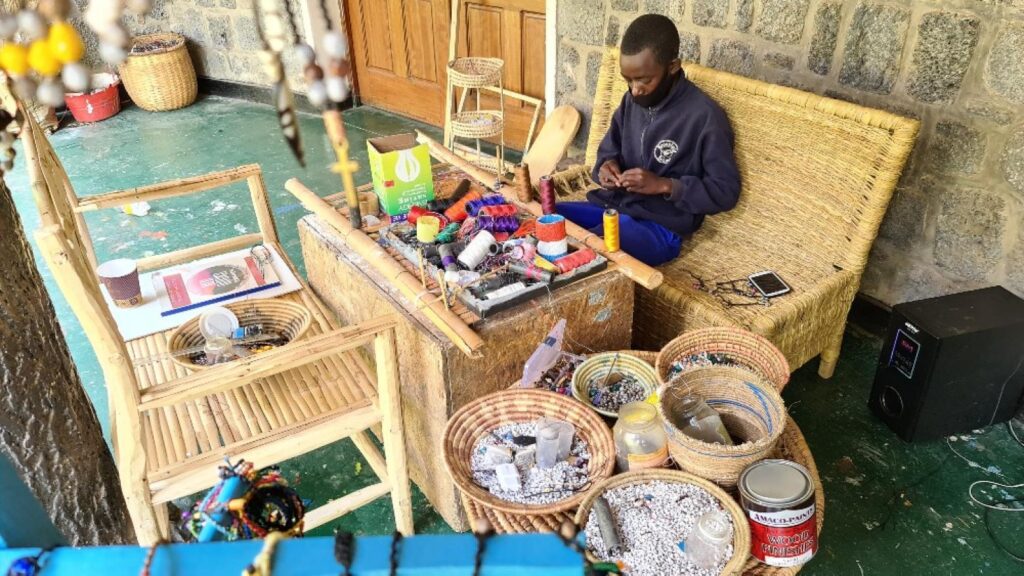
Over the past few years, Rwanda-the Land of a thousand Hills has progressed and evolved into a popular mountain gorilla trekking destination, offering one of the best gorilla trekking experiences. In the world of mountain gorilla conservation, every single birth is a big success that calls for celebration, regardless of the past misperceptions regarding gorilla tourism and its effects to conservation in Rwanda. However, it is undeniable that conservation and tourism are balanced because they have been harmonious and balanced in a way that the latter contributes to conservation and development of community projects.
Gorilla trekking is a fascinating and heartwarming experience that allows tourists to spend time with the exceptional mountain gorillas in their natural habitats. This experience is totally unmatched and beyond what you have ever experienced with other wildlife encounters. Currently, gorilla tourism is one of the key reasons for tourists visiting Rwanda and the top drivers of the country’s economy. With over 300 mountain gorillas that call Volcanoes National Park home, the Park has the second highest population of Mountain gorillas after Bwindi Impenetrable National Park-a home to over 400 mountain gorillas (about half the world’s population of Mountain gorillas).
Volcanoes National Park is a haven to 10 habituated gorilla families open for tracking by tourists; meaning only 80 gorilla permits are available per day, and a gorilla permit in Uganda costs only $1500 per person. The revenue from gorilla tourism goes towards research and conservation of the Mountain gorillas and part of it is disbursed to the local communities living around the Park for their development projects. It is no doubt that tourism has supported gorilla conservation in addition to empowering local community members.
The gorilla doctors, who are a devoted team of professionals assigned to taking care of the critically endangered mountain gorillas within Rwanda and other countries. The work of the gorilla doctors is to provide treatment to ill and injured mountain gorillas in their natural habitats, to monitor the heath of each mountain gorilla, supporting to diagnose any diseases or injuries and to save lives and providing veterinary help to injured and orphaned mountain gorillas by poachers, the gorilla doctors also provide preventive healthcare to the committed Park rangers who protect the Mountain gorillas in the National Park, the local community members living around the Park and their livestock as a way of reducing the risk of spreading diseases from humans to the Mountain gorillas. The Veterinary doctors also conduct autopsy reports of the dead mountain gorillas to ascertain the cause of their death and find a way of preventing further deaths. Not only that, the gorilla doctors work closely with the Rwanda Development Board and other International Conservation/Wildlife Organizations like the Dian Fossey Fund International and the International Gorilla Conservation Programme (IGCP).
The Kwita Izina Ceremony that is an annual Rwanda Gorilla Ceremony that includes giving names to the newly born mountain gorillas in Volcanoes National Park. The main aim of the event is to help in monitoring each individual Mountain gorilla in all the gorilla families. This Ceremony draws guests from within the country and far, and has helped in the sensitization of the local community members and the globe at large on the significance of gorilla tourism. This year (2017), 19 mountain gorillas will be named and is a big step in supporting the protection of the critically endangered mountain gorillas. It is therefore clear and undeniable that the Kwita Izina event promotes the conservation of the Mountain gorillas through sensitization and awareness.
Most crucially, stringent guidelines exist to guide gorilla tourism in Volcanoes National Park due to a number of threats such as poaching, encroachment, diseases and loss of habitat that affect the mountain gorillas. Currently, tourists are advised to encounter the Mountain gorillas at a distance (7 meters away), thus reducing any possible transmission of diseases to the critically endangered Primates of Volcanoes National Park. All these measures are important towards the conservation the Mountain gorillas.
What cannot be ign0red is the fact that gorilla tourism has contributed to the creation of employment opportunities for the local community members around Volcanoes National Park which has created a big impact in their lives and standards of living. For example, most of the ex-poachers have been employed as porters. It is even not surprising that most of the Park Rangers, wardens and guides are locals of the areas. It is also impossible to ignore the fact that most of the Safari Lodges around the Volcanoes National Park acquire the local agricultural products like bananas, pigs, goats, vegetables and milk from the local communities. Employment opportunities improve the standard of living of the local community members.
The introduction of the Revenue sharing scheme by the Rwanda Development Board-where revenues are disbursed to the local communities has been important in balancing the needs of the locals while at the same time contributing to the Conservation of the Mountain gorillas for the future. Also, health centers, schools, water tanks and other development projects have been put in place to support the Local community members
The Iby’iwacu Cultural Village, one of the model projects aimed at bettering the lives of the ex-poachers and other community members living around Volcanoes National Park. There are a number of interesting activities offered to tourists which in the end contributes to revenue generation by the local community members. The Rwandan Development Board provides conservation incentives, supports livelihood based projects and helps in community enterprise development, thus contributing to the development of local communities surrounding Volcanoes National Park.
Therefore, gorilla tourism has tremendously contributed to the conservation of the Mountain gorillas and community development around Volcanoes National Park. The contributions include the deployment of gorilla doctors who treat ill and injured mountain gorillas and monitor individual gorillas, the revenue sharing scheme that has improved the standard of living of the locals surrounding Volcanoes National Park, the Kwita Izina Ceremony that creates sensitization and awareness on mountain gorilla conservation and gorilla tourism which contributes to increase in employment opportunities since some of the ex-poachers are employed as porters.

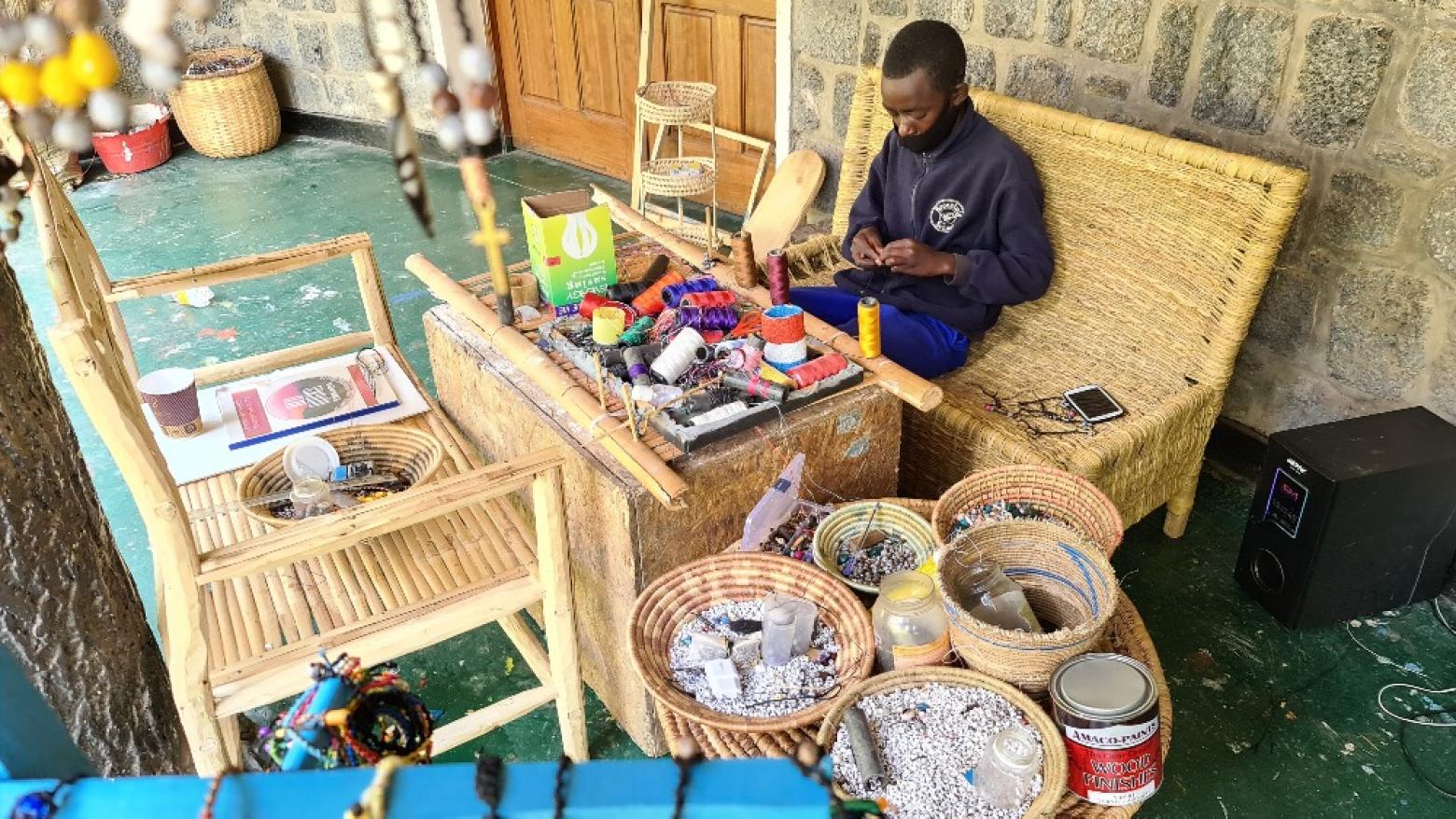
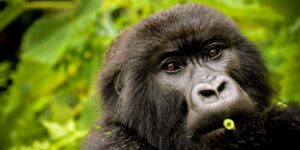
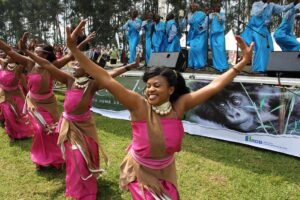
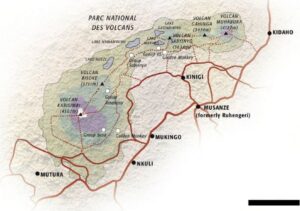
Great article https://www.stingersafricasafaris.com/